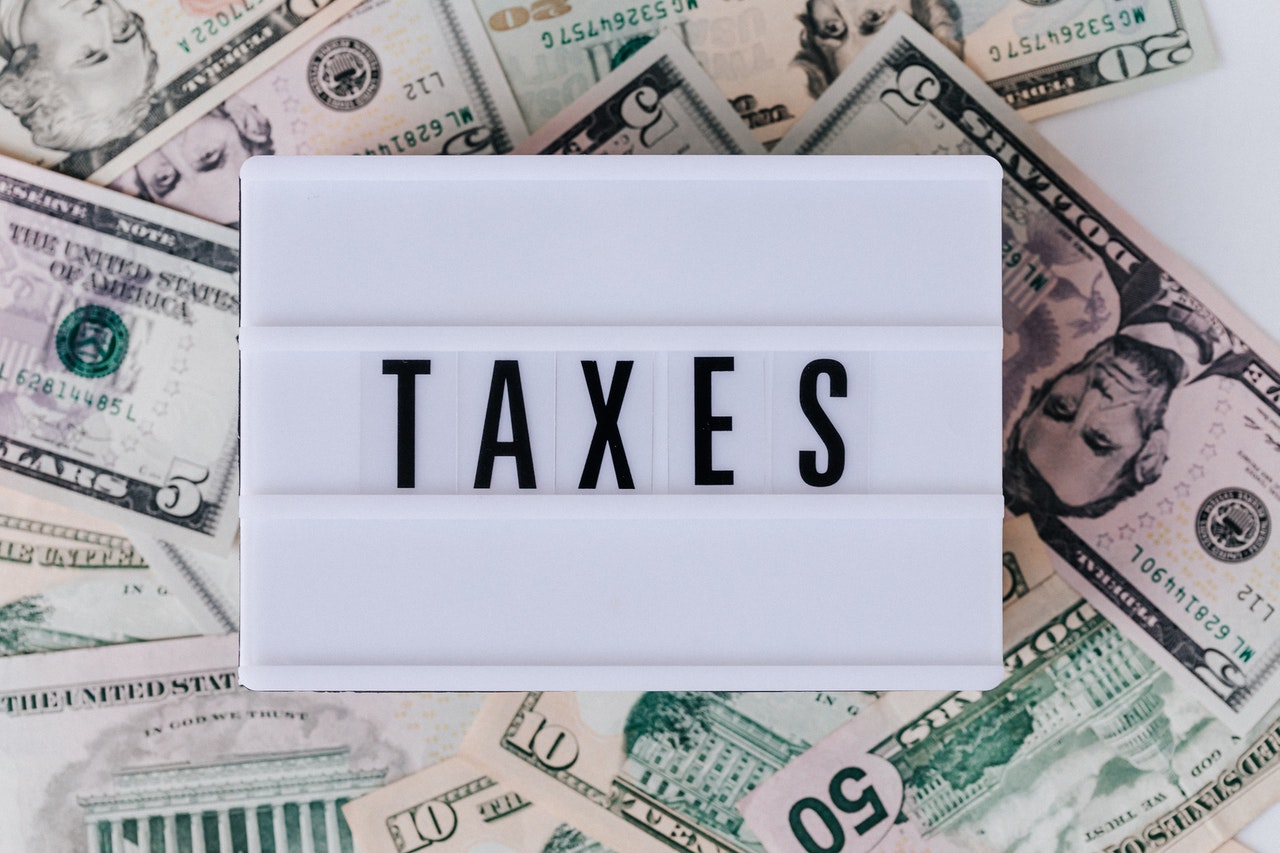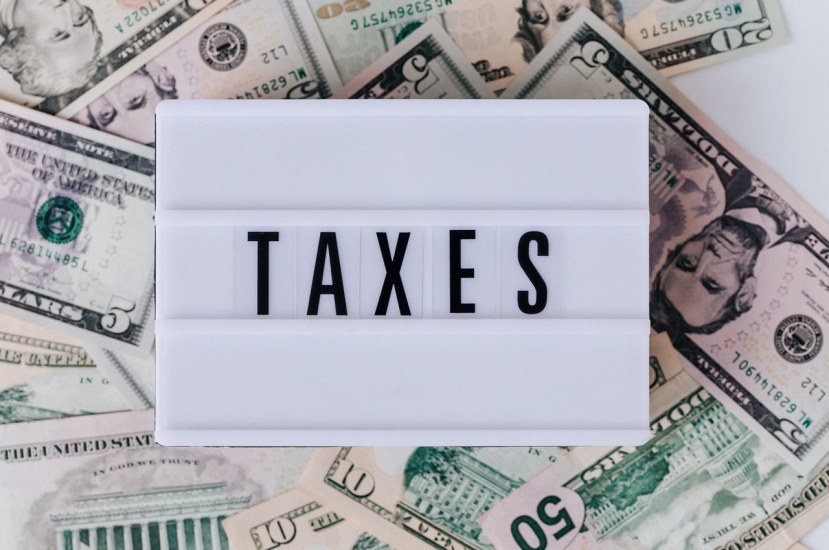Sources of Government Revenue in Ghana, It is the task of government to provide essential services to the community- the maintenance of law and order, building of roads and ports, schools and hospitals and countless other activities necessary to the modern nation.
But in order to provide these services, the government must be able to finance them by ensuring that there is a sufficient flow of money into its hands to enable it to pay for the work it must undertake, thus its operation must depend on having an adequate financial system, which, properly managed, will provide the necessary resources and enable them to be put to use in the national interest.
Summary of Contents
Sources of Government Revenue in Ghana
Over the past decades, the financial system of the central government has become increasingly complex. Not only has the amount of money flowing in and out of the public treasury every year increased tremendously, but its flows in from many more different sources, and it is disbursed for a very greater variety of activities.
Revenue constitutes the ordinary income of the government, being composed of taxation (the major part of revenue) and earnings (charges raised by government departments for services renders to the public, rents received for the lease of government lands or buildings, interest on investment by the government and so on). This is the inflow of money available to finance expenditure.
Sources of Government Revenue in Ghana PDF
Download sources of government revenue in Ghana PDF here
This flow goes on all the time, year-in, year-out. Its magnitude can, however, be varied from year to year, either by government decision (by increasing or decreasing taxation or earnings) or by the natural development of the economy (for example, if everyone in Ghana receives more income, the share of the tax collector will also automatically rise).
Revenue
Revenue is an increase in net worth resulting from a transaction. There are four main sources of revenues. Tax and other compulsory transfer imposed by government units, property income derived from the ownership of assets, sales of goods and services, and voluntary transfers received from other units.
Tax revenue
Tax Revenue which forms the dominant share of revenues for many government units is composed of compulsory transfers to the government sector. Certain compulsory transfers, such as fines, penalties and most social security contributions are excluded from tax revenue.
Refunds and corrections of erroneously collected tax revenue have the appearance of transactions that decrease the net worth of the government unit imposing the tax.
More accurately, they are adjustments that allow the excessive increase in net worth previously recorded to be correct. As such, these transactions are treated as negative revenue.
Read Before You Continue
All other types of revenue are frequently combined into a heterogeneous category on non-tax revenue.
Grants are noncompulsory transfers received by government units or international organizations. Grants from the foreign government are international organizations would appear in the consolidated Fund Accounts.
Grants may be classified as capital or current and can be received in cash or in kind.
Sales of goods and services include sales by market establishments, administrative fees, incidental sales by no-market establishments, and imputed sales of goods and services. Some administrative fees are so high that they are clearly out of proportion to the cost of the services provided. Such fees are classified as taxes.
Sales of goods and services are recorded as revenue without deduction of the expenses incurred in a generation that revenue. It is quite possible for government units to sell their output at prices that are less than the cost of production.
Indeed, as non-market producers, most government units distribute their output without charge or for prices that are not economically significant.
In these cases, the net worth of the unit has decreased because the expense from productions higher than the revenue from the sales of the goods and services
TAX REVENUE

Tax Revenue sources include the following:
Direct Tax:
Direct Taxes are taxes amount earned by individuals and corporations, like tax, corporate tax and duty. It also includes Capital Gains Tax and tax.
Indirect Tax:
This is a tax which isn’t paid directly by the one that suffers or bears the burden. this sort of tax is placed on goods and services that are bought and consumed by individuals. They include taxes on general goods and services, excises, customs and other imports, taxes on Export and levies.
Non- tax revenue: All other sorts of revenue aside from taxes are mentioned as Non-tax revenue. An example may include grants, loans, royalties, sale of products and services, etc.
Grants are non-compulsory transfers received by government or government units from international organizations and other developed countries like Uk, America, China, France, among others.
In the consolidated Fund Accounts, the following list of items are classified as constituting tax revenue:
INTERNATIONAL TRADE AND TRANSACTIONS
IMPORT DUTIES
General import duties
VAT on imports
Penalties on import duties
Others (non-tax revenue)
You may also like to read:
- PUBLIC SECTOR ACCOUNTING CONCEPTS
- REGULATORY FRAMEWORK OF PUBLIC SECTOR ACCOUNTING | 2020
- Introduction to Public Sector Accounting
EXPORT DUTIES ON
Cocoa
Timber
Diamond
Kola Nuts
Re-Export Levy
Other export duties
DOMESTIC TAXES ON GOODS AND SERVICES
Beer
Cigarettes
Spirits
Mineral water
VALUE ADDED TAX ON
Beer
Cigarettes
Spirits
Mineral waters
Textiles (Fabric)
Textile (Apparels)
Soap
Cosmetics
Furniture
Salt
Radio & TV/Elect. Prod
Rubber products
metal products
plasticware
glassware
aluminium ware
roofing sheet
paints
food items
nonalcoholic Beverage
paper production/printing
sawn timber
flour
chemical
cement
misc. other local industries
professional services
electricity
water
telecommunication
quarrying
sand winning
hotels & restaurant
entertainment
advertisement
miscellaneous
PETROLEUM TAXES ON
Premium
Kerosene
Gas oil
Amortization free-LPG
Promotional Levy-LPG
Jet Fuel (ATK)
Industrial diesel oil
Unified gasoline
Bunkers
Petroleum road fund
Petroleum exploration Levy
Petroleum strategic stock Levy
Petroleum energy fund
TAXES ON INCOME, PROFIT AND CAPITAL GAINS
Personal (Employee)
Self-employed
State enterprises
Capital gains tax
Gift tax
Rent tax
Mineral royalties
Service tax
Stamp tax
Banderoles tax
Penalties
Dividend tax
Interest
Commission
Management and tech. ser.
Ceded misc. Tax
Property rate
Non-tax Revenue
Whereas tax revenue is compulsory in nature, non-tax revenue constitutes user fees, rent, sales of goods and services and others.
Below is a list of items recognized as not-tax revenue in the consolidated Fund Accounts.
Leave a comment below …





Leave a comment